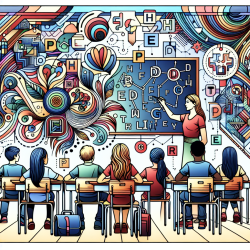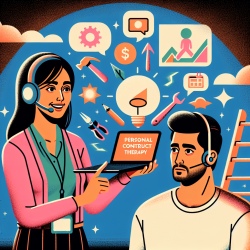Dyslexia is a learning disorder characterized by difficulties with accurate and/or fluent word recognition and by poor spelling abilities. It is often linked to deficits in phonological processing. Recent research, however, sheds light on another aspect of dyslexia: the impairment of holistic word recognition. This blog explores how educators and practitioners can leverage these findings to enhance their teaching strategies and support students with dyslexia more effectively.
The Role of Holistic Word Processing
Holistic word processing refers to the ability to recognize words as whole units rather than piecing them together letter by letter. This skill is crucial for fluent reading, as it allows for quick and efficient word recognition. In individuals with dyslexia, this process is often impaired, leading to slower reading speeds and increased difficulty with reading comprehension.
The study "Holistic Word Processing in Dyslexia" investigates whether this impairment is due to a lack of sensitivity to orthographic regularity—the visual form of words—and how it affects reading fluency. The findings suggest that individuals with dyslexia may rely more on analytic strategies, focusing on individual letters rather than the word as a whole.
Implications for Educational Practice
The insights from this research have significant implications for educators working with students with dyslexia:
- Emphasize Orthographic Regularity: Educators should focus on teaching students about common letter patterns and spelling rules to help them develop a better understanding of orthographic regularity. This can be achieved through activities that highlight these patterns in various contexts.
- Incorporate Multisensory Techniques: Using multisensory approaches can enhance the learning experience by engaging multiple senses. Techniques such as tracing letters in sand or using letter tiles can help reinforce the visual form of words.
- Encourage Analytic Strategies: While holistic processing is ideal, encouraging analytic strategies can also be beneficial. Teaching students to break down words into smaller parts or syllables can aid in decoding unfamiliar words.
- Utilize Technology: Technology can provide personalized learning experiences that cater to individual needs. Software that adapts to a student's pace and provides immediate feedback can be particularly helpful.
The Importance of Further Research
This study opens up new avenues for research into the cognitive processes underlying dyslexia. It highlights the need for further exploration into how different types of word processing affect reading development and what interventions are most effective for improving reading skills in individuals with dyslexia.
Practitioners are encouraged to stay informed about the latest research developments and consider how these insights can be integrated into their teaching practices. By doing so, they can provide more targeted support that addresses the unique challenges faced by students with dyslexia.
Conclusion
The findings from the study on holistic word processing in dyslexia offer valuable insights into the reading challenges faced by individuals with this learning disorder. By understanding these challenges, educators can implement more effective strategies that support the development of reading skills in students with dyslexia.










